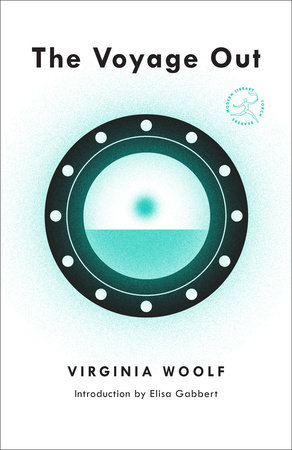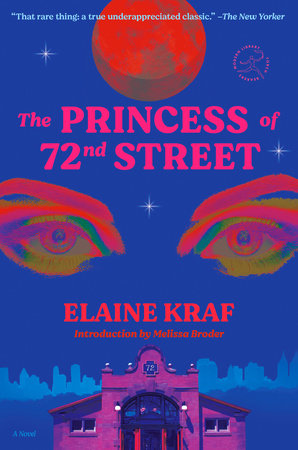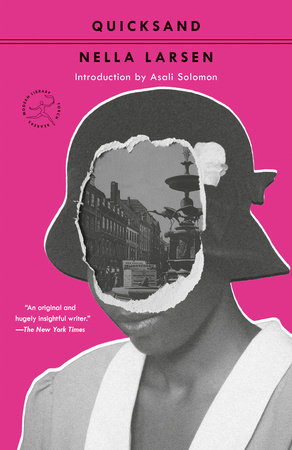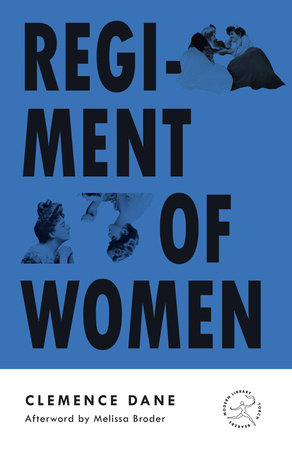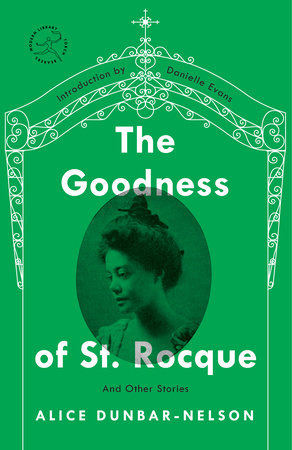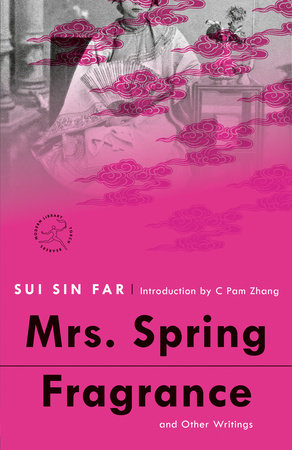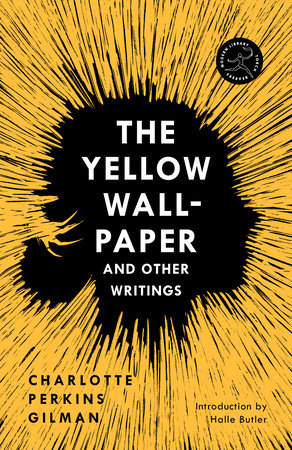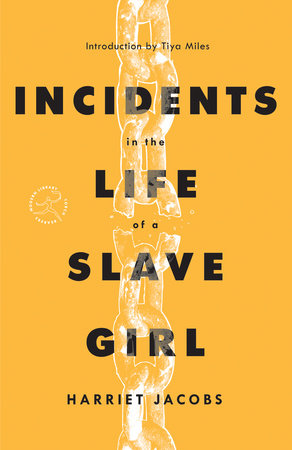Excerpt
The Voyage Out
Chapter IAs the streets that lead from the Strand to the Embankment are very narrow, it is better not to walk down them arm-in-arm. If you persist, lawyers' clerks will have to make flying leaps into the mud; young lady typists will have to fidget behind you. In the streets of London where beauty goes unregarded, eccentricity must pay the penalty, and it is better not to be very tall, to wear a long blue cloak, or to beat the air with your left hand.
One afternoon in the beginning of October when the traffic was becoming brisk a tall man strode along the edge of the pavement with a lady on his arm. Angry glances struck upon their backs. The small, agitated figures--for in comparison with this couple most people looked small--decorated with fountain pens, and burdened with despatch-boxes, had appointments to keep, and drew a weekly salary, so that there was some reason for the unfriendly stare which was bestowed upon Mr. Ambrose's height and upon Mrs. Ambrose's cloak. But some enchantment had put both man and woman beyond the reach of malice. In his case one might guess from the moving lips that it was thought; and in hers from the eyes fixed stonily straight in front of her at a level above the eyes of most that it was sorrow. It was only by scorning all she met that she kept herself from tears, and the friction of people brushing past her was evidently painful. After watching the traffic on the Embankment for a minute or two with a stoical gaze she twitched her husband's sleeve, and they crossed between the swift discharge of motor cars. When they were safe on the further side, she gently withdrew her arm from his, allowing her mouth at the same time to relax, to tremble; then tears rolled down, and, leaning her elbows on the balustrade, she shielded her face from the curious. Mr. Ambrose attempted consolation; he patted her shoulder; but she showed no signs of admitting him, and feeling it awkward to stand beside a grief that was greater than his, he crossed his arms behind him, and took a turn along the pavement.
The embankment juts out in angles here and there, like pulpits; instead of preachers, however, small boys occupy them, dangling string, dropping pebbles, or launching wads of paper for a cruise. With their sharp eye for eccentricity, they were inclined to think Mr. Ambrose awful; but the quickest witted cried "Bluebeard!" as he passed. In case they should proceed to tease his wife, Mr. Ambrose flourished his stick at them, upon which they decided that he was grotesque merely, and four instead of one cried "Bluebeard!" in chorus.
Although Mrs. Ambrose stood quite still, much longer than is natural, the little boys let her be. Some one is always looking into the river near Waterloo Bridge; a couple will stand there talking for half an hour on a fine afternoon; most people, walking for pleasure, contemplate for three minutes; when, having compared the occasion with other occasions, or made some sentence, they pass on. Sometimes the flats and churches and hotels of Westminster are like the outlines of Constantinople in a mist; sometimes the river is an opulent purple, sometimes mud-colored, sometimes sparkling blue like the sea. It is always worth while to look down and see what is happening. But this lady looked neither up nor down; the only thing she had seen, since she stood there, was a circular iridescent patch slowly floating past with a straw in the middle of it. The straw and the patch swam again and again behind the tremulous medium of a great welling tear, and the tear rose and fell and dropped into the river. Then there struck close upon her ears--
Lars Porsena of Clusium
By the nine Gods he swore--
and then more faintly, as if the speaker had passed her on his walk--
That the Great House of Tarquin
Should suffer wrong no more.
Yes, she knew she must go back to all that, but at present she must weep. Screening her face she sobbed more steadily than she had yet done, her shoulders rising and falling with great regularity. It was this figure that her husband saw when, having reached the polished Sphinx, having entangled himself with a man selling picture postcards, he turned; the stanza instantly stopped. He came up to her, laid his hand on her shoulder, and said, "Dearest." His voice was supplicating. But she shut her face away from him, as much as to say, "You can't possibly understand."
As he did not leave her, however, she had to wipe her eyes, and to raise them to the level of the factory chimneys on the other bank. She saw also the arches of Waterloo Bridge and the carts moving across them, like the line of animals in a shooting gallery. They were seen blankly, but to see anything was of course to end her weeping and begin to walk.
"I would rather walk," she said, her husband having hailed a cab already occupied by two city men.
The fixity of her mood was broken by the action of walking. The shooting motor cars, more like spiders in the moon than terrestrial objects, the thundering drays, the jingling hansoms, and little black broughams, made her think of the world she lived in. Somewhere up there above the pinnacles where the smoke rose in a pointed hill, her children were now asking for her, and getting a soothing reply. As for the mass of streets, squares, and public buildings which parted them, she only felt at this moment how little London had done to make her love it, although thirty of her forty years had been spent in a street. She knew how to read the people who were passing her; there were the rich who were running to and from each others' houses at this hour; there were the bigoted workers driving in a straight line to their offices; there were the poor who were unhappy and rightly malignant. Already, though there was sunlight in the haze, tattered old men and women were nodding off to sleep upon the seats. When one gave up seeing the beauty that clothed things, this was the skeleton beneath.
A fine rain now made her still more dismal; vans with the odd names of those engaged in odd industries--Sprules, Manufacturer of Saw-dust; Grabb, to whom no piece of waste paper comes amiss--fell flat as a bad joke; bold lovers, sheltered behind one cloak, seemed to her sordid, past their passion; the flower women, a contented company, whose talk is always worth hearing, were sodden hags; the red, yellow, and blue flowers, whose heads were pressed together, would not blaze. Moreover, her husband, walking with a quick rhythmic stride, jerking his free hand occasionally, was either a Viking or a stricken Nelson; the sea-gulls had changed his note.
"Ridley, shall we drive? Shall we drive, Ridley?"
Mrs. Ambrose had to speak sharply; by this time he was far away.
The cab, by trotting steadily along the same road soon withdrew them from the West End, and plunged them into London. It appeared that this was a great manufacturing place, where the people were engaged in making things, as though the West End, with its electric lamps, its vast plate-glass windows all shining yellow, its carefully-finished houses, and tiny live figures trotting on the pavement, or bowled along on wheels in the road, was the finished work. It appeared to her a very small bit of work for such an enormous factory to have made. For some reason it appeared to her as a small golden tassel on the edge of a vast black cloak.
Observing that they passed no other hansom cab, but only vans and waggons, and that not one of the thousand men and women she saw was either a gentleman or a lady, Mrs. Ambrose understood that after all it is the ordinary thing to be poor, and that London is the city of innumerable poor people. Startled by this discovery and seeing herself pacing a circle all the days of her life round Piccadilly Circus she was greatly relieved to pass a building put up by the London County Council for Night Schools.
"Lord, how gloomy it is!" her husband groaned. "Poor creatures!"
What with misery for her children, the poor, and the rain, her mind was like a wound exposed to dry in the air.
At this point the cab stopped, for it was in danger of being crushed like an egg-shell. The wide Embankment which had had room for cannon-balls and squadrons, had now shrunk to a cobbled lane steaming with smells of malt and oil and blocked by waggons. While her husband read the placards pasted on the brick announcing the hours at which certain ships would sail for Scotland, Mrs. Ambrose did her best to find information. From a world exclusively occupied in feeding waggons with sacks, half obliterated too in a fine yellow fog, they got neither help nor attention. It seemed a miracle when an old man approached, guessed their condition, and proposed to row them out to their ship in the little boat which he kept moored at the bottom of a flight of steps. With some hesitation they trusted themselves to his care, took their places, and were soon waving up and down upon the water, London having shrunk to two lines of buildings on either side of them, square buildings and oblong buildings placed in rows like a child's avenue of bricks.


